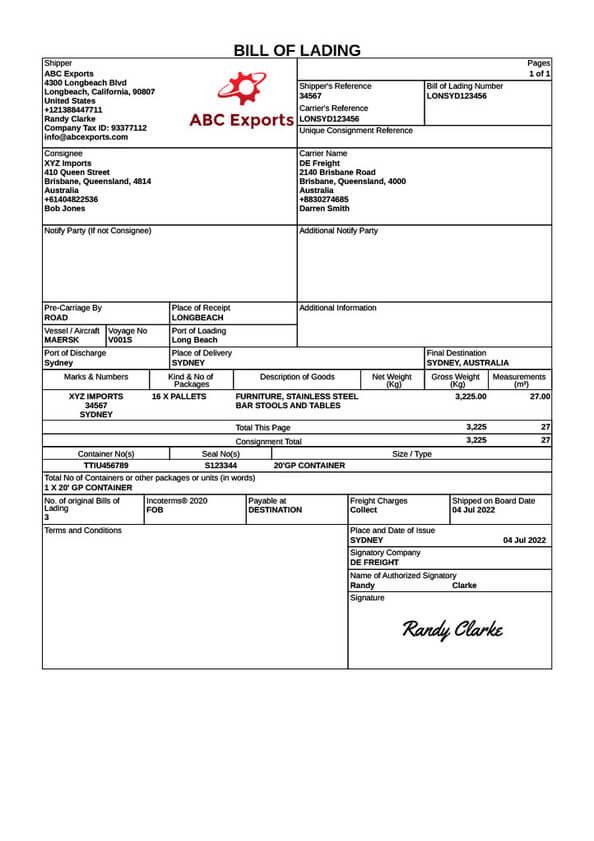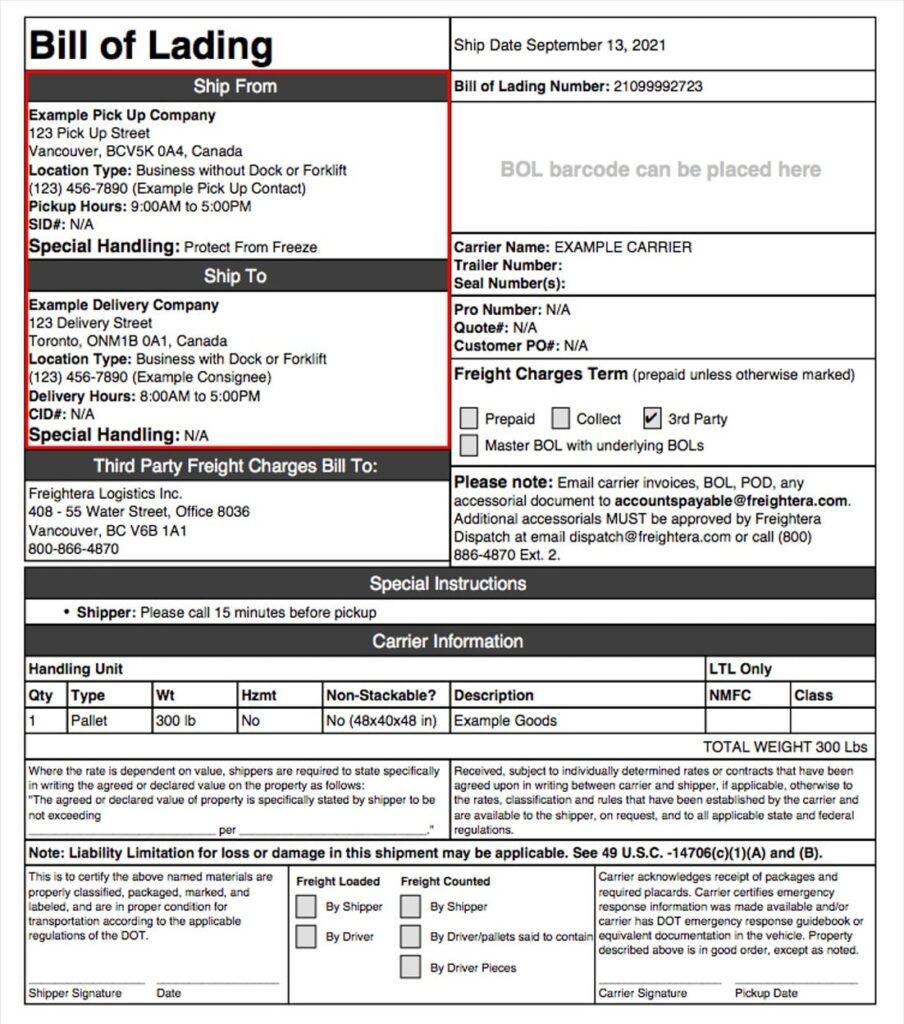In the world of logistics, transport, and shipping, the humble Bill of Lading serves as a crucial document that guides goods on their journey from origin to destination. Often overlooked yet indispensable, this piece of paper holds immense power in ensuring the smooth and efficient flow of goods across borders and oceans. Join us as we delve into the intricate world of Bill of Lading, uncovering its importance and impact on the world of transportation and trade.
Understanding the Importance of Bill of Lading in Shipping
Bill of Lading is a crucial document in the world of shipping. It serves as a receipt for goods shipped, a contract of carriage, and a document of title. Without a Bill of Lading, the shipment would not be considered legally complete.
Through the process of Logistics, Transport, and Shipping, the Bill of Lading plays a vital role in ensuring that goods are delivered to the right destination, to the right party, and in the right condition. It acts as a proof of ownership and is essential for claim settlements in cases of damage or loss during transit.

Streamlining Logistics Operations with Bill of Lading
Streamlining logistics operations with a bill of lading is essential for the smooth flow of goods from one point to another. This important document serves as a receipt of goods, a contract of carriage, and a document of title, making it a crucial part of the shipping process. By utilizing a bill of lading, businesses can effectively track and manage their shipments, ensuring that they reach their intended destination in a timely manner.
With the use of a bill of lading, companies can improve their logistics operations by:
- Providing a clear record of the goods being transported
- Establishing responsibilities between shippers, carriers, and recipients
- Enhancing communication and coordination throughout the supply chain
- Facilitating efficient customs clearance processes

Maximizing Transport Efficiency Through Bill of Lading Implementation
Implementing a bill of lading in the logistics, transport, and shipping industry is crucial for maximizing efficiency and ensuring smooth operations. The bill of lading serves as a legal document that outlines the details of the shipment, including the type of goods, quantity, and destination. By properly utilizing the bill of lading, businesses can streamline their transport processes, reduce errors, and enhance overall efficiency.
With the use of a bill of lading, companies can accurately track shipments, coordinate deliveries, and monitor the movement of goods from origin to destination. This document also helps in establishing accountability and responsibility among all parties involved in the transportation process. By implementing effective bill of lading practices, businesses can optimize their transport efficiency, reduce costs, and improve customer satisfaction.

Key Recommendations for Utilizing Bill of Lading in Shipping Operations
When utilizing bill of lading in shipping operations, it is important to ensure accuracy and completeness in all documentation. This plays a crucial role in preventing delays and disputes during the transportation process. Make sure to double-check all information on the bill of lading, including the names and addresses of both the shipper and consignee, as well as accurate descriptions of the goods being shipped.
Another key recommendation is to keep detailed records of all bill of lading documents for future reference. This can help in resolving any issues that may arise during the shipping process and provide a clear trail of documentation for auditing purposes. Additionally, maintaining open communication with all parties involved in the transportation process can help streamline operations and ensure a smooth delivery process.
To Conclude
In conclusion, the Bill of Lading plays a crucial role in the world of logistics, transport, and shipping. It serves as a legal document that not only acts as a receipt for goods but also as a contract between parties involved in the transportation of goods. Understanding the importance and intricacies of the Bill of Lading is essential for a smooth and efficient transportation process. With proper knowledge and adherence to regulations, businesses can ensure the safe and timely delivery of their goods. So, next time you see a Bill of Lading, remember the significant role it plays in the intricate web of global transportation and logistics.
